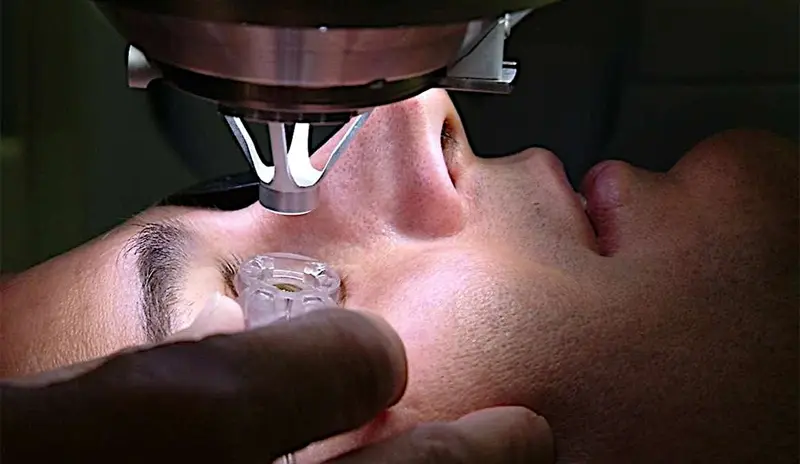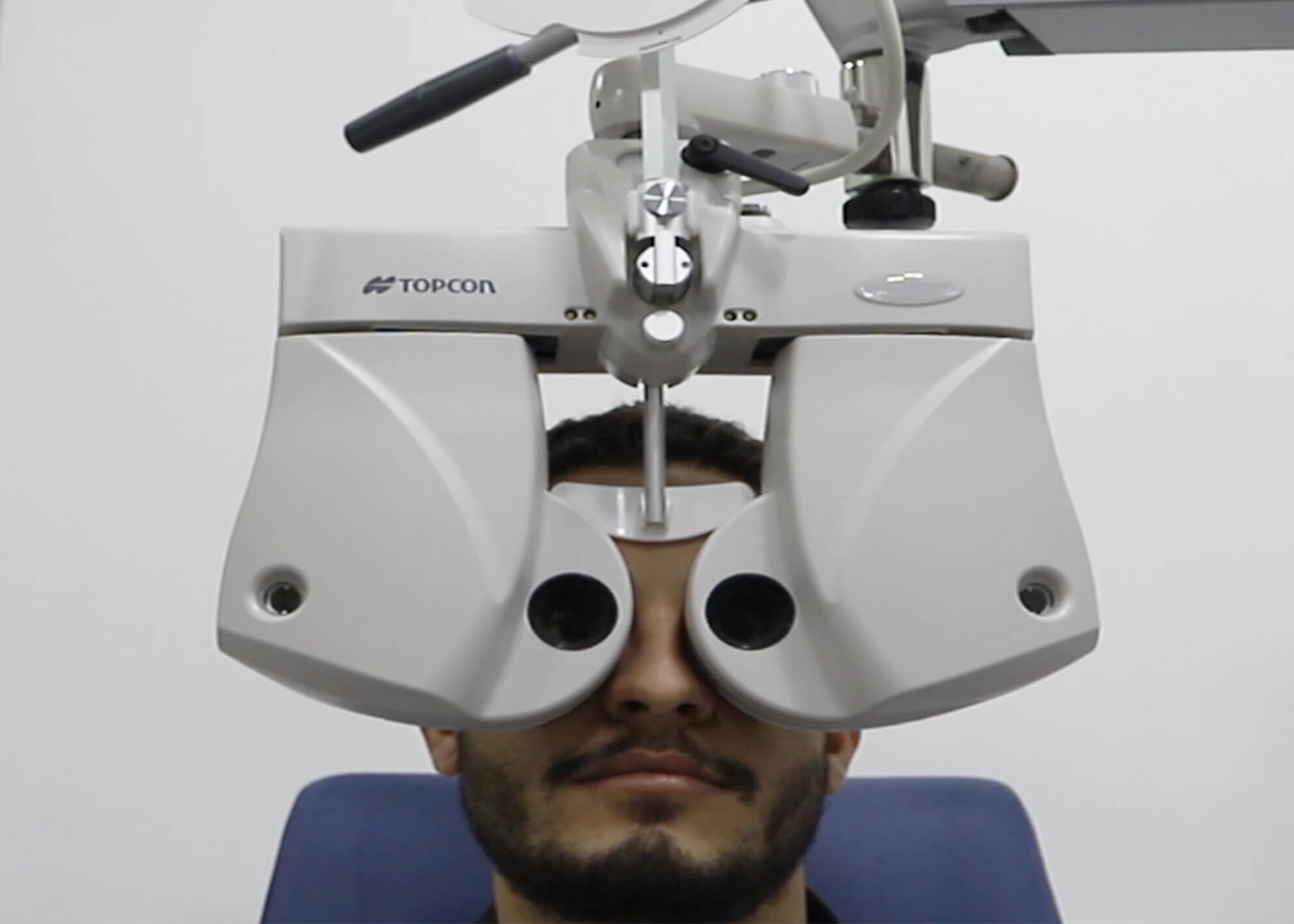Complications of Refractive Surgery at Eye Clinic DRHC Dubai
Refractive surgery has transformed the way we correct vision problems like myopia, hyperopia, astigmatism, and presbyopia, offering millions of people the chance to see clearly without relying on glasses or contact lenses. While these procedures are generally safe and effective, it's important to be informed about the potential risks and complications that can arise. At DRHC Dubai, we are committed to transparency and patient education, ensuring that you have all the information you need to make an informed decision about your eye care.
Understanding the Potential Complications
Even with the advanced technology and skilled surgeons at DRHC Dubai, complications can occur in a small percentage of refractive surgery cases. These complications can range from mild and temporary to more significant, but they are typically manageable with prompt medical attention.
Common Complications and Their Management
- Overview: Dry eyes are a common side effect of refractive surgery, particularly LASIK. This occurs when the surgery affects the corneal nerves responsible for tear production, leading to reduced tear secretion.
- Symptoms: Patients may experience a gritty or burning sensation in the eyes, sensitivity to light, and discomfort, especially during the first few weeks after surgery.
- Management:
- Artificial Tears: The use of lubricating eye drops can help alleviate dryness and discomfort.
- Punctal Plugs: For persistent dry eyes, punctal plugs can be inserted to block tear drainage, keeping the eyes moist.
- Medications: Prescription eye drops, such as anti-inflammatory or cyclosporine drops, can help stimulate tear production and reduce inflammation.
2. Visual Disturbances:
- Overview: Some patients may experience visual disturbances such as glare, halos, starbursts, or double vision after refractive surgery, particularly in low-light conditions.
- Symptoms: These disturbances can make tasks like night driving more challenging and may cause discomfort.
- Management:
- Time and Adaptation: Many visual disturbances improve on their own as the eyes heal and the brain adjusts to the new vision.
- Enhancement Surgery: In cases where disturbances persist, a secondary enhancement procedure may be recommended to fine-tune the results.
- Specialized Eyewear: Glasses with anti-reflective coatings or lenses designed to reduce halos and glare can help manage these symptoms.
3. Undercorrection or Overcorrection:
- Overview: Sometimes, the desired level of vision correction may not be fully achieved, leading to undercorrection (insufficient correction) or overcorrection (excessive correction).
- Symptoms: You may still need glasses or contact lenses after surgery, or experience difficulty focusing at certain distances.
- Management:
- Enhancement Procedures: Additional laser treatments can adjust the cornea to achieve the desired level of correction.
- Prescription of Lenses: In cases of mild under correction or overcorrection, glasses or contact lenses may be sufficient to correct the residual refractive error.
- Regular Follow-Up: Monitoring by your ophthalmologist will determine the best course of action to refine your vision.
4. Flap Complications (LASIK-specific):
- Overview: LASIK involves creating a flap in the cornea, which can sometimes result in complications such as flap dislocation, folds or wrinkles in the flap, or epithelial ingrowth (cells growing under the flap).
- Symptoms: Flap complications can cause discomfort, blurred vision, and visual distortions.
- Management:
- Immediate Attention: Prompt treatment is crucial. Your surgeon may need to reposition the flap or smooth out wrinkles.
- Epithelial Ingrowth Treatment: If cells grow under the flap, they may need to be removed surgically to prevent further complications.
- Protective Measures: Wearing an eye shield after surgery and avoiding rubbing your eyes can help prevent flap dislocation.
5. Infection or Inflammation:
- Overview: Infection and inflammation are rare but serious complications that can occur after refractive surgery. These conditions require immediate medical attention.
- Symptoms: Signs include redness, pain, excessive tearing, swelling, and blurred vision.
- Management:
- Antibiotic Eye Drops: Prescribed to treat or prevent infection.
- Anti-Inflammatory Medications: Steroid eye drops or oral medications may be used to reduce inflammation.
- Close Monitoring: Regular follow-up visits are essential to ensure the infection or inflammation is resolving properly
Reducing Risks and Ensuring Success
At DRHC Dubai, we take a proactive approach to minimize the risks associated with refractive surgery. Our pre-surgery evaluations are thorough, ensuring that only suitable candidates undergo the procedure. We use the latest technology and techniques to enhance safety and outcomes. Additionally, our post-operative care is designed to monitor your recovery closely and address any complications promptly.
What to Do if Complications Arise
If you experience any complications or unexpected symptoms after your refractive surgery, it is crucial to contact DRHC Dubai immediately. Early intervention is key to managing complications effectively and preventing long-term issues. Our team is available to provide the care and support you need throughout your recovery process.
Conclusion
Refractive surgery can greatly improve your quality of life, but it's important to be aware of the potential risks and complications. By choosing DRHC Dubai, you are placing your trust in a leading eye care center with a commitment to patient safety, advanced technology, and exceptional results. Our goal is to help you achieve your best possible vision while minimizing the risks associated with surgery.
.png?width=281&height=59&name=bookanappointment%20(1).png)
At Dr. Rami Hamed Center, our Ophthalmology department is dedicated to safeguarding your vision health through expert eye care Professionals, Renowned as one of the best eye care clinics in Dubai our Ophthalmology Specialists provide services for Cataract and retina treatment with Laser and Refractive surgeries.




.png?width=281&height=59&name=bookanappointment%20(1).png)






